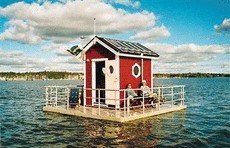MyartMystyle
MyartMystyle's Profile
MyartMystyle's Profile
| Username | MyartMystyle | Gender | Female |
| Date Joined | Location | Australia | |
| Last Updated | Occupation | ||
| Last visit | # Pictures | 13 | |
| # Comments Given | 80 |
Member Info
Member Info

My other gallery: http://myartmystyle.deviantart.com/. ^_-
favorite
faves_faves
Favorite Artists' Recent Submissions
Comments
You are not authorized to comment here. Your must be registered and logged in to comment
christakys on June 24, 2007, 5:43:20 PM
christakys on
MyartMystyle on June 24, 2007, 6:33:59 PM
MyartMystyle on
tainted_truffle on July 6, 2006, 10:47:00 AM
VegetaVixen22 on April 14, 2006, 11:29:07 PM
VegetaVixen22 on March 8, 2006, 4:13:51 PM
DevilmayCry1 on February 22, 2006, 2:35:33 PM
DevilmayCry1 on
rolla_roach on February 8, 2006, 10:39:47 AM
rolla_roach on
rolla_roach on February 8, 2006, 10:37:12 AM
rolla_roach on
See, female ducks, or hens, lay only one egg a day. Once it's laid, she leaves it and goes off to do her own thing, going back to the nest the next day to lay another. She'll do this for 8-15 days until she has a full clutch. Then, she starts to incubate (set) them. It takes 28 days for a duck egg to hatch.
Your father's heart was in the right place, but the egg may not be ready to incubate just yet. If it was the only one in the nest, it may need to be stored in a cool place (about 60 degrees F. and 75 degrees humidity)for about a week. Always store and incubate eggs with the big end slightly elavated.
Since he can't remember where exactly he found it, it's best to store it for several days before incubation. When incubation starts, it must be between 90 and 104 degrees F. The egg must also be turned at least 4 times a day to prevent the developing embyo from sticking to the shell and dieing. 3 days before the egg is to hatch, stop turning it.
But, how do you know if it's fertile? That's easy. Simply hold the egg big side up in a dark room and shine a good flashlight through the bottom. This will illuminate the inside so you can see. A tiny lima-bean shaped shadow should be visable with several blood vessels branching from it. That's the sign of a properly developing embryo. A brown, liquidy substance means the egg is rotton and should be properly disposed of. A dark mass means the embyro has died. If you see nothing but the shadow of the yolk means the egg is infertile and can be eaten.
I hope this helps you! Thanks a bunch for all the nice comments!
